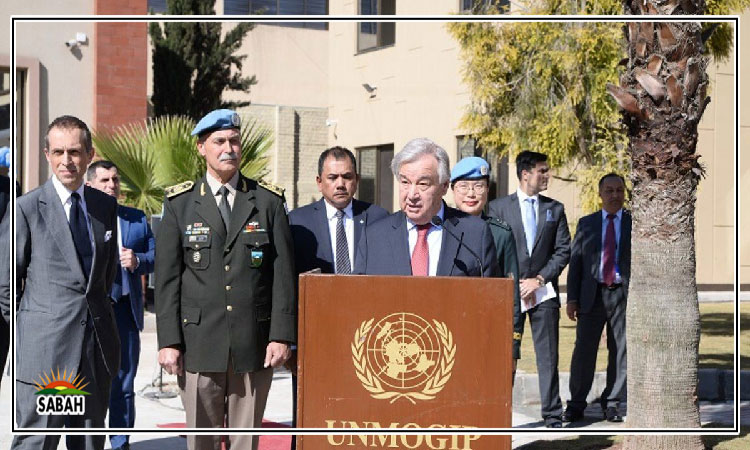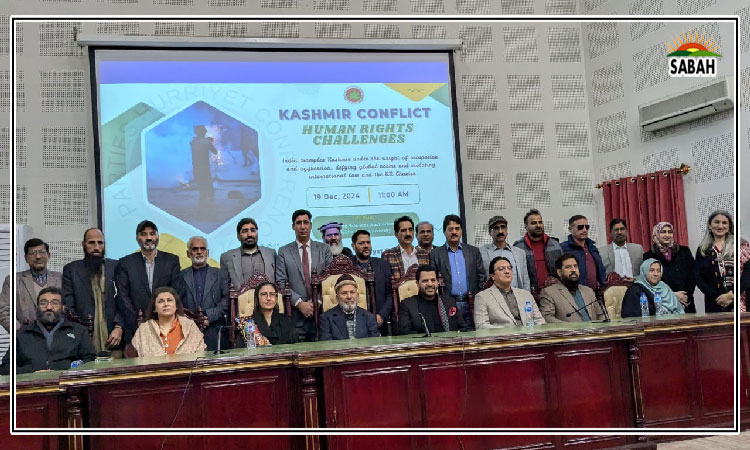In the Midst of Global Conflicts, International Peace and Security Remains Illusive … Dr. Ghulam Nabi Fai Chairman World Forum for Peace & Justice
Mr. Antonio Guterres, the Secretary General of the United Nations spoke during seventy-eighth session of the General Assembly on February 7, 2024, “Although peace is the “raison d’être” of the United Nations, it is the one thing missing most dramatically from the world. The Secretary-General stressed that people want peace with security and dignity, “and frankly, they want peace and quiet” — from anger, hate and war. However, for millions of people caught up in conflict around the world, “life is a deadly, daily, hungry hell”.
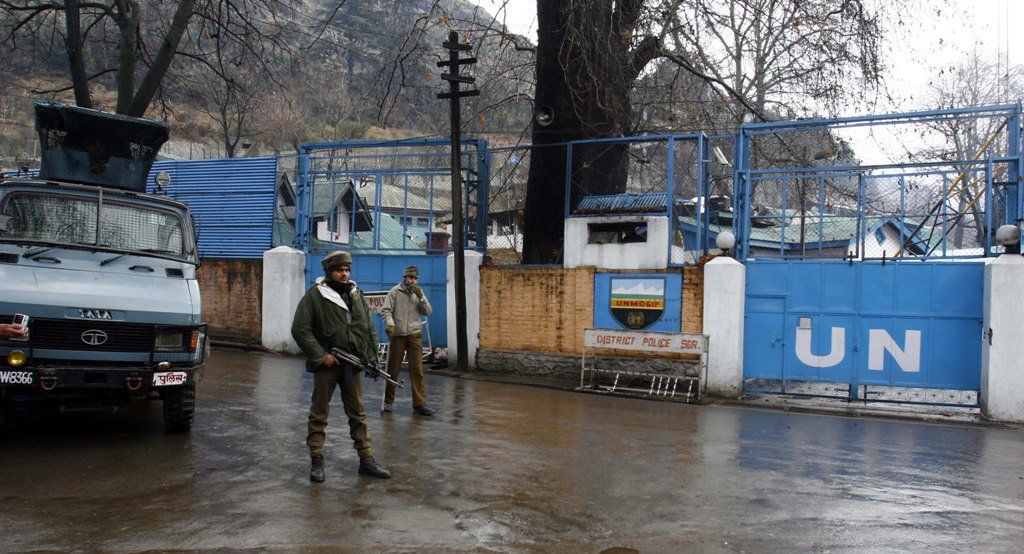
Ambassador Philemon Yang, President of UN General Assembly said on September 10, 2024, that peace and security will continue to be “of paramount importance” during his presidency.
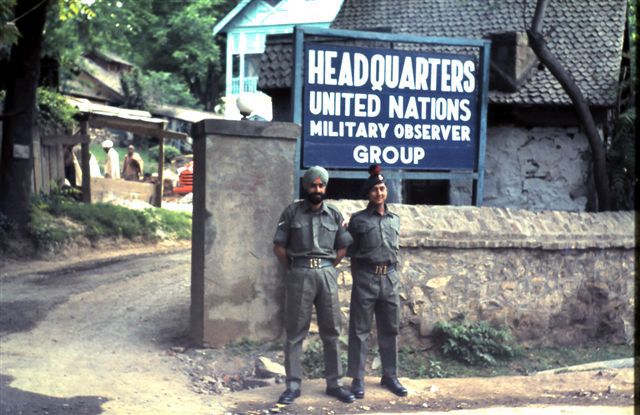
As we all know that one of the purposes of the United Nations as mentioned in the UN Charter Article 1/1 is, “to maintain international peace and security, and to that end: to take effective collective measures for the prevention and removal of threats to the peace, and for the suppression of acts of aggression or other breaches of the peace, and to bring about by peaceful means, and in conformity with the principles of justice and international law, adjustment or settlement of international disputes or situations which might lead to a breach of the peace.”
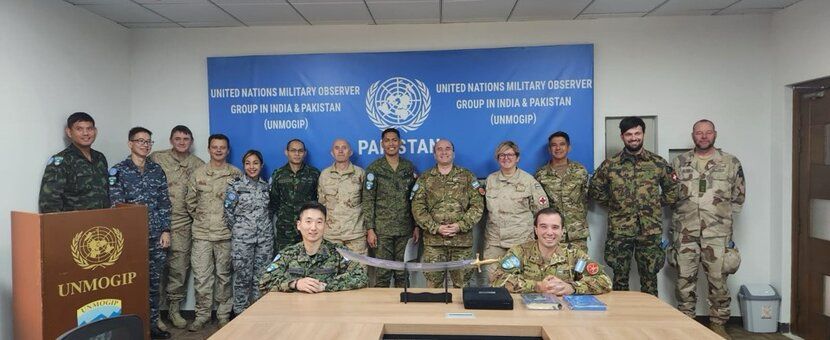
We feel gratified that the Secretary General of the United Nations and the President of General Assembly are seized of the important matters relating to the international peace and security, which have been recognized over the years as an essential condition for the enjoyment of human rights and human dignity. In many parts of the world, the first requirement is to promote and protect their right to life, which is being denied not because of deep seated structural problem but due to violence which is being encouraged and condoned though unwittingly.
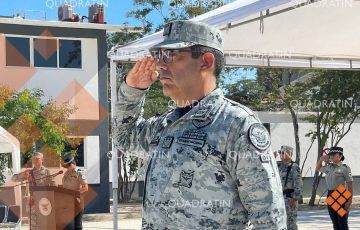
It is worth mentioning here that in order to maintain international peace and security, the United Nations is using different methods, including, ‘Preventive Diplomacy and Mediation’, and ‘Peacekeeping operations, like, United Nations Mission in Western Sahara (MINURSO); Central African Republic (MINUSCA); DR Congo (MONUSCO); South Sudan (UNMISS). One such peacekeeping operation was established by the Security Council, on January 24, 1948, which is called, ‘United Nations Military Observer Group in India and Pakistan’ (UNMOGIP). That makes UNMOGIP, the oldest peacekeeping operation in the world. The Group has 110 personnel and is headed by Major General Ramón Guardado Sánchez of Mexico who was appointed by UN Secretary General on November 13, 2024. The headquarter of UNMOGIP is in Srinagar, the Capitol city of Kashmir as well as in Rawalpindi, Pakistan.
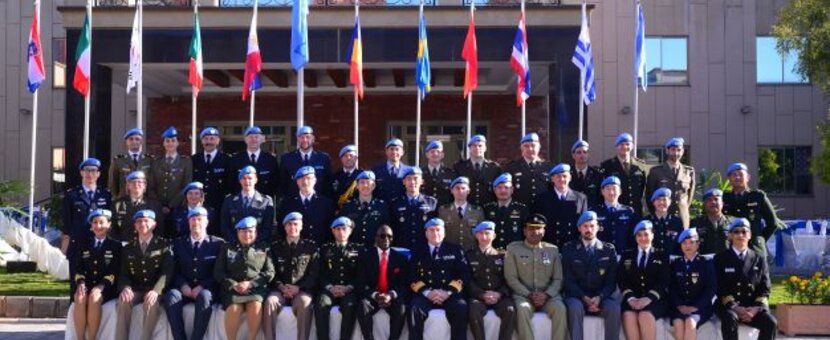
It is axiomatic that international peace and security define the basic condition for the respect for civil and political rights and promotion of economic, social and cultural rights. In an environment of turmoil, tribulations, killings, massacres, the very concept of human rights becomes a mockery. We have to address the root causes of the violations of human rights that will lead us to the resolutions of international conflicts.

After an end to the ideological confrontation between East and West, the international community had reason to hope that hostilities in many parts of the world would also come to an end and the residual regional conflicts would be resolved peacefully through negotiations and mediation. However, contrary to our expectations, in many parts of the world, bloody conflicts are raging which have destroyed all the hopes for a humane and stable world order.

All this notwithstanding, the United Nations has supervised the dismantling of the colonial structures for the last few decades and has played a key role in the realization of the right of self-determination of a great number of peoples over most of the globe. Prime examples are those of Namibia, East Timor, Southern Sudan, etc. However, the right of self-determination, which is a fundamental human rights, continues to be denied in the land which is known as ‘Paradise on earth’, Kashmir.

The South Asian region furnishes undeniable evidence of how respect for human rights cannot be achieved without first creating conditions for international peace and security. The people of Jammu & Kashmir were pledged by no less authority than the UN Security Council to exercise their right to decide their future under conditions free from coercion and intimidation. However, the peaceful movement of the people of Kashmir for the realization of this right has been crushed with brute force and draconian laws, in particular Domicile Law which is designed to change the demography of Kashmir. Over the last five years, since August 5, 2019, when India abrogated Article 370 and 35 A in clear violations of UN Security Council resolution # 91 of 1951 and 122 of 1957, the suffering of the Kashmiri people have reached an indescribable intensity and magnitude.
All human rights enshrined in the UN Charter, the Universal Declaration of Human Rights and the Human Rights Covenants have been flagrantly violated by the Indian army. Torture, extrajudicial executions, disappearances, willful destruction of property, forced displacement and land grabbing are the order of the day. An apparatus of 900,000 Indian military and paramilitary forces presided over by the illegitimate colonial administration is responsible for all these heinous crimes. Kashmiris, despite journalistic restrictions and media suppression, have been trying to bring these horrors to the attention of the international community. The atrocities in Kashmir have been documents by 47-pages report issued by the UN High Commissioner on Human Rights and dozens of reputable international human rights organizations, including Amnesty International, Human Rights Watch, FIDH and others.
In the face of this overwhelming evidence of killings, massacres and consistent violations of human rights of the people of Jammu & Kashmir, the international response has been very passive, to say the least. This has had the effect, unintended no doubt, of appeasing and encouraging the perpetrators of these crimes in their remorseless war against people of Kashmir.
The Kashmiris’ demand is very simple. They want to be free of military occupation and to decide their future by a democratic vote, impartially supervised. A mechanism for the exercise of this right has already been defined by the United Nations Security Council. This mechanism needs to be activated and implemented. Once the international community takes the civilized course of ascertaining the wishes of the people of Kashmir, we are confident that peace and security can be restored to the troubled land and the ground prepared for the enjoyment of human rights of the people. Of course, the scars of the people of Kashmir are deep and it will take decades for them to heal but beginning can be made to repair the damage done to Kashmir’s economic, social and cultural life.
We hope that the world powers will realize that exercising the right to self-determination of the people of Kashmir alone will ensure peace and security in the region of South Asia.
Dr. Fai is also the Secretary General, World Kashmir Awareness Forum.
He can be reached at: WhatsApp: 1-202-607-6435 or. gnfai2003@yahoo.com
www.kashmirawareness.org






